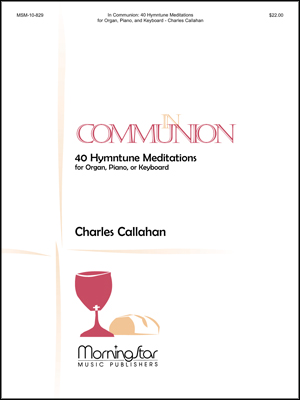- |
User Links
Lord of All Good
Hymn Information
- First Line
- Lord of all good, our gifts we bring to you
- Author
- Albert F. Bayly, 1901-1984 (alt.)
- Tune Name
- GENEVAN 124 (OLD 124TH)
- Tune Source
- <cite>Genevan Psalter</cite>, 1551
- Topic
- Servants of God · Stewardship of Possessions · Trinity · Elements of Worship: Offering
Copyright Information
- Text Copyright
- © 1988 Oxford University Press, reproduced by permission
- Tune Copyright
- Public Domain
- Reprint/Projection Information
- Words: Permitted with a license from CCLI.com or from OneLicense.net. If you do not own one of these licenses, please contact the copyright holder for permission.
- Music: The Music is in the Public Domain; you do not need permission to project or reprint the Music.
Scripture References
- · · · · · · · · · ·
Confessions and Statements of Faith References
Further Reflections on Confessions and Statements of Faith References
When we sing about the offering of our gifts, we quickly find several thoughts interwoven with each other. The first is the foundational thought that God’s generosity in Christ has brought us salvation and all good things in life. God has “created heaven and earth and all other creatures from nothing” (Belgic Confession, Article 12) and he continues to “provide whatever I need in body and soul” (Heidelberg Catechism, Lord’s Day 9, Question and Answer 26). But God’s greatest act of generosity is shown in the gift of his Son “by a most perfect love” (Belgic Confession, Article 20) through whom we find the forgiveness of our sins and eternal life. This generosity of God is always in the background of each song in this section.
God’s children are called to respond thankfully to God’s generosity. Our gifts, therefore, take on the nature of a testimony of thankfulness to our generous God. We aim that “with our whole lives we may show that we are thankful to God for his benefits, so that he may be praised through us” (Heidelberg Catechism, Lord’s Day 32, Question and Answer 86). Indeed, all our living, including our gifts, are intended to show “how I am to thank God for such deliverance” (Heidelberg Catechism, Lord’s Day 1, Question and Answer 2). It is natural, therefore, that our giving of offerings is accompanied with songs that express this gratitude.
Lord of All Good
Assurance
Additional Prayers
Lord of all good,
Our gifts we bring to you.
Our gifts we bring to you.
Our gifts we bring to you.
Our gifts we bring to you in Jesus’ blessed name. Amen.


 My Starred Hymns
My Starred Hymns







